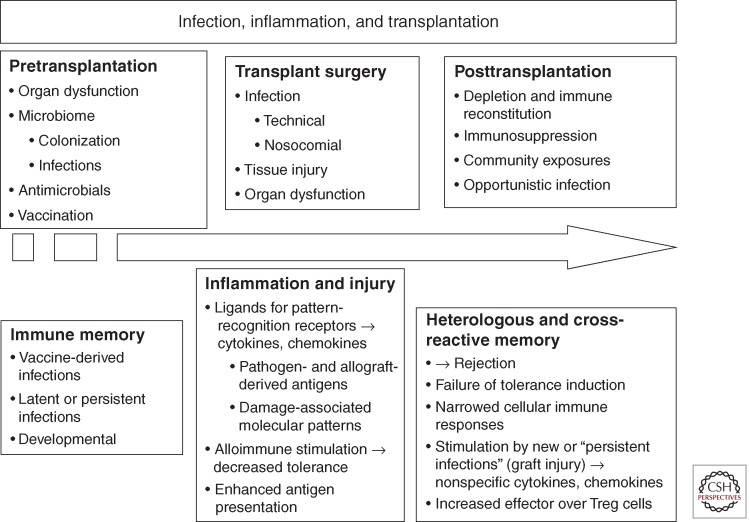Figure 2.
The impact of infectious exposures, inflammation, the microbiome, heterologous immunity, and innate immune stimulation on transplantation. The microbiome is the sum of colonizing organisms, acute and chronic infections, and reflects alterations in this flora by the immune system, vaccination, or antimicrobial agents. Antigens and activating molecular patterns from microbes or damaged tissues are released during all phases of transplantation and are present during graft rejection, immunosuppression, and/or immune reconstitution following lymphocyte depletion. These antigenic exposures and inflammatory mediators shape immune function via both the innate and adaptive immune systems and impact the outcome of transplantation (see also Chong and Alegre 2012).

